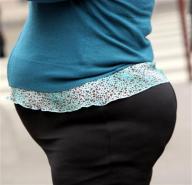Experts urge screening for obesity in kids
Doctors should screen children and teens between 6 and 18 years for extra pounds, a federal task force recommends.
For children who are found to be obese based on their body mass index (BMI), a standard measure of the relationship between height and weight, the task force also calls for referrals to a comprehensive program that includes dietary advice, physical activity, and behavioral counseling to promote weight loss.
The new recommendations update earlier ones from 2005. Skyrocketing rates of obesity have reached between 12 and 18 percent in 2- to 19-year-olds, increasing up to 6-fold since the 1970s, members of the United States Preventive Services Task Force report in the February issue of the journal Pediatrics. Obesity is linked to the early development of diabetes and high blood pressure.
For their update, the task force reviewed 13 studies of behavioral intervention in 1258 obese children and adolescents.
Moderate- to high-intensity programs, involving more than 25 hours of contact with the child and/or the family over a six-month period, resulted in a decrease in BMI 12 months after the beginning of the intervention.
In addition to dietary and physical activity counseling, effective programs included behavioral-management techniques such as self-monitoring and eating management. However, the programs only worked in children who followed through on treatment.
Harms of screening — for example, adverse effects on growth, eating-disorder pathology, or mental health issues — were judged to be minimal.
It is unclear if the recommendations can be applied to children who are overweight but not obese. And there was no convincing support for interventions that lasted less than 25 hours per six months, or for screening children below age 6.
Yet some experts take issue with what they consider the narrow age bracket of the recommendation.
“The USPSTF falls short of the mark in not recognizing the developmental trajectory of obesity in childhood,” writes Dr. Sandra G. Hassink, from the Dupont Hospital for Children in Wilmington, Delaware, in a related commentary.
Hassink urges pediatricians to screen all children. “Working with families to screen for high-risk nutrition and activity behaviors that contribute to obesity in early childhood must be part of that task,” she writes.
childhood obesity,teenage obesity,obesity statistics,obesity health,obesity diet,obesity epidemic,obesity children,prevent obesity,obesity child,preventing obesity,obesity causes,obesity rates,obesity exercise,adolescent obesity,obesity diabetes,child obesity,obesity,obesity info,obesity adults,obesity information,obesity problem,overweight obesity,obesity clinic,sobesity helpobesity diseases,adult obesity,fast food obesity,morbid obesity,information on obesity,kids obesity,obesity facts,obesity clinic,teen obesity,obesity treatments,obese,obesity support,obesity article,obesity solutions,obesity program,obesity percent,obesity percentage,obesity solution,obesity graphs,define obesity,obesity childhood,nutrition obesity,obesity consequences,obesity definition,obesity factors,obesity risks,obesity risk,obesity trends,type 2 diabetes obesity,cdc obesity,obesity weight,obesity bmi





